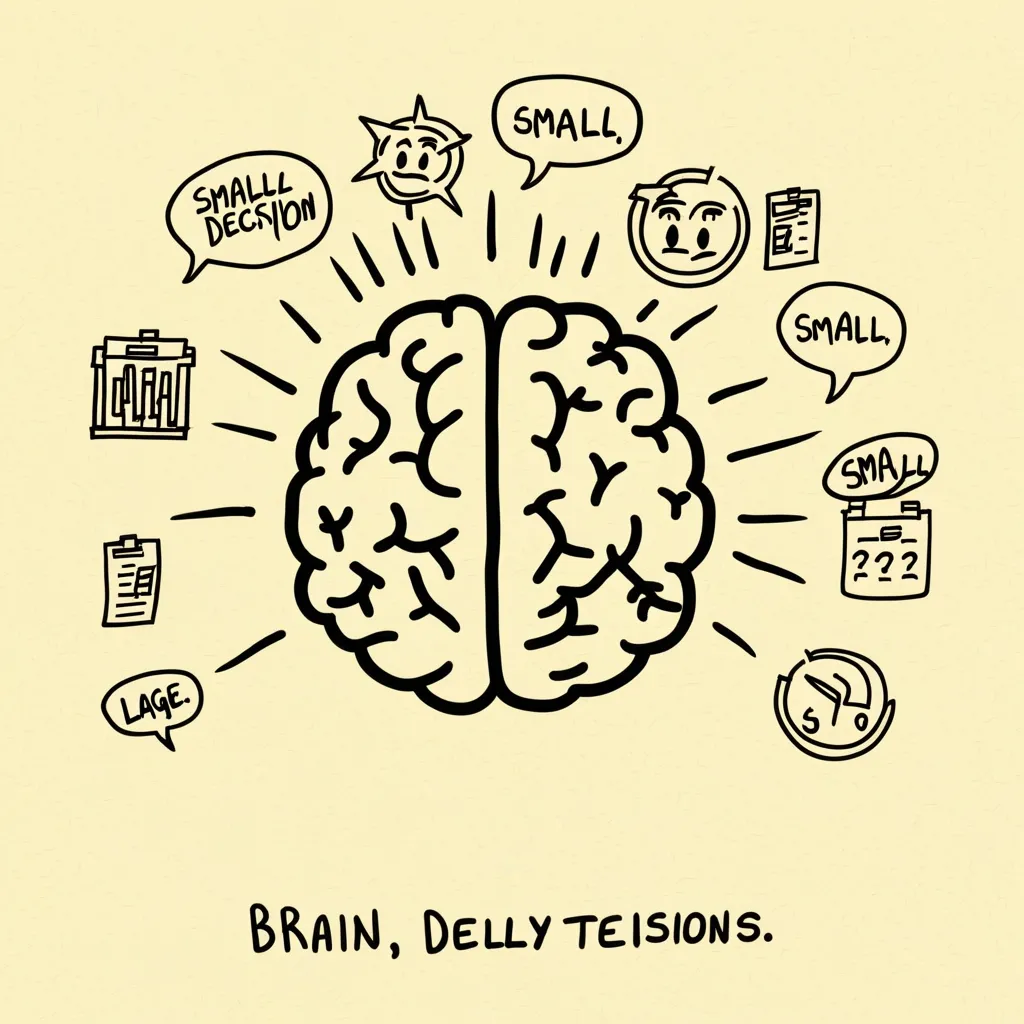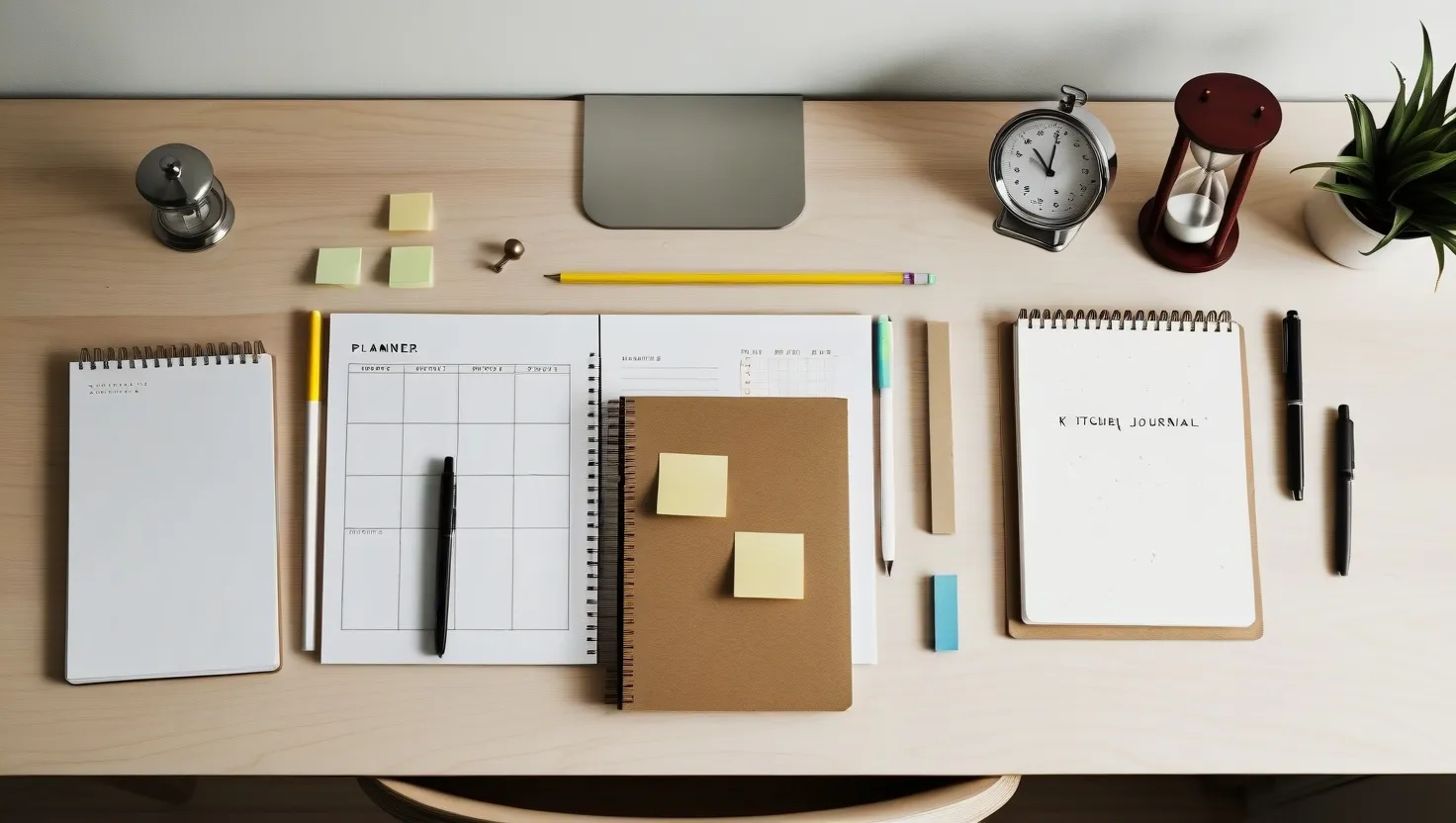Life is a series of choices, from what to have for breakfast to which career path to follow. But did you know that every decision you make, no matter how small, slowly drains your mental energy? This phenomenon is called decision fatigue. It’s like your brain has a battery that depletes over time with each choice, leaving you mentally drained by the end of the day. Let’s break it down in a simple way to understand and tackle this common issue.
What’s the Deal with Decision Fatigue?
Picture your brain as a computer with limited processing power. Every decision, whether it’s picking an outfit or deciding on a big project at work, uses up your brain’s battery. The kicker? Your brain doesn’t care how important the decision is; it just knows it’s making another choice. So, as the day goes on, you’re more likely to make less optimal decisions.
For instance, studies have shown that judges are more lenient at the start of the day or right after a break. Why? Because their energy levels are higher, and they can think more clearly. As they tire, their decisions become harsher. It’s not about being lazy or reckless; it’s just how our brains function.
Spotting the Symptoms
Decision fatigue can show up in sneaky ways. You might struggle to concentrate or find yourself easily sidetracked. Ever felt unusually irritated or frustrated over minor choices? That’s another indicator. Procrastination is a big red flag, too. If you’re putting off decisions more frequently than usual, your mental energy might be on the fritz.
You might also start making impulsive decisions, without much thought, or feeling overwhelmed and defaulting to the easiest choice instead of weighing your options. These signs show that your brain is tired and needs a break.
Make Life Easier by Simplifying Choices
One way to combat decision fatigue is by making your routine choices simpler. Take your wardrobe, for example. Planning your outfits in advance or sticking to a similar style every day can save you loads of mental energy. This tactic can go beyond clothing.
Think about meal planning. By deciding what to eat for the week ahead of time, you cut down on daily decisions. You could also simplify your commute by creating a favorite playlist or sticking to the same podcast every day, so you don’t have to decide what to listen to every morning.
Setting Up Routines and Systems
Consistency is your friend when it comes to reducing decision fatigue. By establishing set routines for your daily tasks, you’re freeing up mental space for more critical decisions. If you’re in charge of a team, create templates and checklists for recurring tasks. It’ll streamline your work process and cut down the number of choices you have to make.
Sharing the Load: Delegating Decisions
Too many decisions piling up? Consider delegating some of them to others. If you manage a team, let your team members take over certain decisions. At home, share responsibilities with your partner. For example, if you always decide what’s for dinner, let your partner take a turn every other day. This way, you’re not the only one running on low battery.
Be Smart About Your Energy
Knowing when your brain is at its best can help you make better decisions. Most people think clearer and have more energy before lunch. Use this peak time for the most important decisions. Time-blocking can also be super helpful. By setting aside chunks of time for focused work, you make sure you’re not interrupted and can think more clearly.
Don’t Forget Breaks
Physical fatigue can add to your mental weariness. Taking breaks throughout the day can recharge your brain. Short naps, a quick walk, or just stepping outside can do wonders for your mental energy, improving your decision-making abilities. Listen to your body—it knows when to take a break.
Use Themes and Rules to Guide You
To avoid decision fatigue, try theming or rule-making. Theming involves grouping tasks under a single theme. For instance, set a personal theme for the year like “delegation.” This helps you focus on what’s essential and reduces the number of decisions you need to make.
Creating personal rules works too. Maybe you decide to meditate every morning or allocate specific times for certain tasks. These rules save your mental energy by cutting down on daily decisions.
Get Strategic with Scheduling
Scheduling is a key tool in managing decision fatigue. Block out specific times for tasks and set deadlines, ensuring crucial projects get done without wearing out your mental resources. For example, reserve “quiet time” for activities like writing or planning, giving you uninterrupted space to focus.
Reflect on Your Choices
Taking time to reflect on your decisions is crucial. Think about what worked and what didn’t. Did you give the decision the right amount of importance? Analyzing your choices helps refine your decision-making process, making you better prepared for the future.
Confidence Check
Knowing your self-confidence and its impact on your decisions is important. Overconfidence can lead to poor choices. Understanding mental shortcuts your brain takes for quick decisions can also help you make more thoughtful and effective choices.
Wrapping It Up
Decision fatigue is a challenge everyone faces, but it’s manageable. Simplifying routine choices, setting up systems, delegating responsibilities, managing your energy, and using strategies like theming, rule-making, and scheduling can make a huge difference.
Remember, your mental energy is limited. Managing it wisely is the key to better decisions and enhanced productivity throughout the day. So take a step back, look at how you make decisions, and start implementing these strategies. Your brain will thank you!






